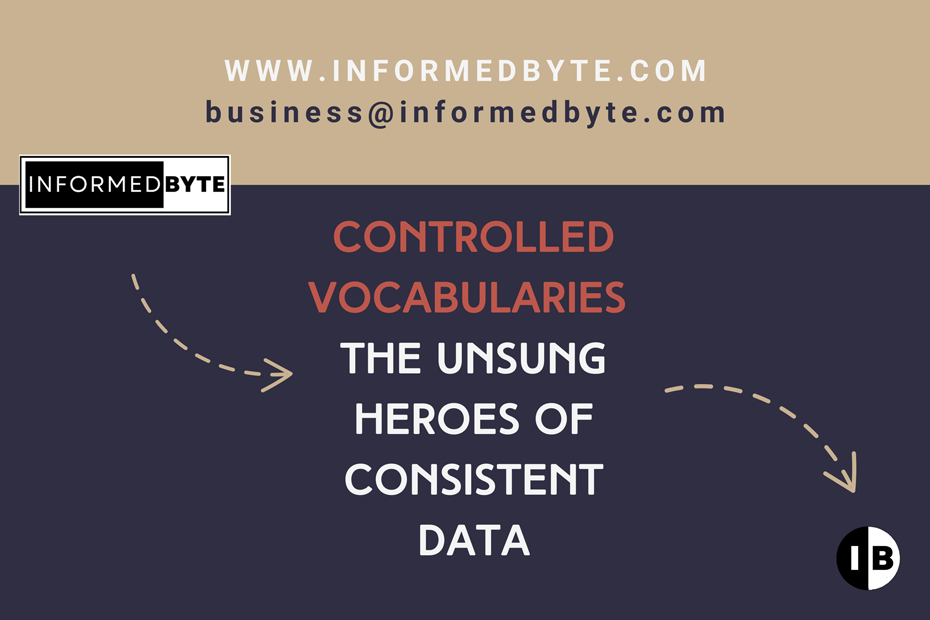Controlled Vocabularies: The Unsung Heroes of Consistent Data
August 12, 2025
Imagine a world where data is chaotic, inconsistent, and unreliable. You might find yourself struggling to make sense of the information at your disposal, leading to inefficiencies and errors. This is where controlled vocabularies come into play, acting as the unsung heroes of consistent data. By standardising terminology and ensuring uniformity, controlled vocabularies help you maintain data integrity and facilitate effective communication within your organisation.

Image credit by Brett Jordan on Unsplash
Controlled vocabularies are structured collections of terms that are used to organise and categorise information. They provide a common language that allows you to describe and retrieve data consistently. Whether you are working in a library, a research institution, or a business environment, controlled vocabularies play a crucial role in ensuring that everyone is on the same page.
One of the primary benefits of controlled vocabularies is their ability to enhance data quality. When you use standardised terms, you reduce the risk of ambiguity and misinterpretation. This is particularly important in fields where precision is paramount, such as healthcare, legal, and scientific research. By adhering to a controlled vocabulary, you can ensure that your data is accurate, reliable, and easily understood by others.
In addition to improving data quality, controlled vocabularies also facilitate data integration. When you are dealing with data from multiple sources, it can be challenging to reconcile differences in terminology. Controlled vocabularies provide a common framework that allows you to harmonise data from disparate systems. This is especially valuable in large organisations where data is generated and stored in various departments and formats. By using a controlled vocabulary, you can create a unified view of your data, making it easier to analyse and leverage for decision-making.
Another advantage of controlled vocabularies is their role in enhancing search and retrieval. When you have a well-defined set of terms, you can create more effective search queries and improve the accuracy of your search results. This is particularly beneficial in environments where information retrieval is critical, such as libraries, archives, and digital repositories. By using controlled vocabularies, you can ensure that your search results are relevant and comprehensive, saving you time and effort.
Controlled vocabularies also play a vital role in metadata management. Metadata, or data about data, is essential for organising and describing information resources. When you use controlled vocabularies to create metadata, you ensure that your descriptions are consistent and standardised. This makes it easier to manage and maintain your data over time, as well as to share it with others. In the context of digital preservation, controlled vocabularies are indispensable for ensuring the long-term accessibility and usability of your data.
In the business world, controlled vocabularies can help you streamline operations and improve efficiency. By standardising terminology across your organisation, you can reduce the risk of misunderstandings and errors. This is particularly important in industries where precision and consistency are critical, such as manufacturing, finance, and logistics. Controlled vocabularies can also support regulatory compliance by ensuring that your data meets industry standards and requirements.
Moreover, controlled vocabularies can enhance collaboration and communication within your organisation. When everyone uses the same terms to describe data, it becomes easier to share information and collaborate on projects. This is particularly valuable in multidisciplinary teams where members may have different backgrounds and expertise. By using a controlled vocabulary, you can create a common language that bridges gaps and fosters collaboration.
Implementing a controlled vocabulary requires careful planning and management. You need to identify the key terms and concepts that are relevant to your organisation and stakeholders to ensure that they are consistently applied. This may involve creating a governance structure to oversee the development and maintenance of the vocabulary, as well as providing training and support to ensure that it is used correctly.
One of the challenges of implementing a controlled vocabulary is keeping it up to date. As your organisation evolves and new terms and concepts emerge, you need to ensure that your vocabulary remains relevant and accurate. This requires ongoing monitoring and maintenance, as well as a process for incorporating feedback and updates. By staying proactive and responsive, you can ensure that your controlled vocabulary continues to meet the needs of your digital assets and information sharing.
In conclusion, controlled vocabularies are the unsung heroes of consistent data. By standardising terminology and ensuring uniformity, they enhance data quality, facilitate data integration, improve search and retrieval, and support metadata management. In the business world, they can help you streamline operations, improve efficiency, and enhance collaboration. While implementing a controlled vocabulary requires careful planning and management, the benefits are well worth the effort. By embracing controlled vocabularies, you can ensure that your data is accurate, reliable, and easily understood, paving the way for better decision-making and more effective communication within your organisation.
Ready to launch your controlled keyword list? Let's begin with a free Informed Byte consultation.
Let's make hero vocabularies
